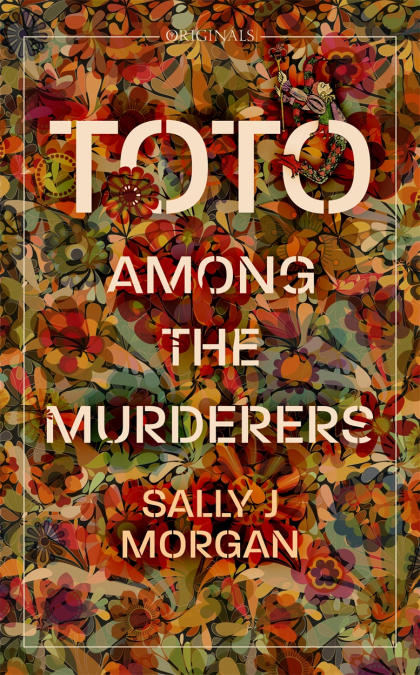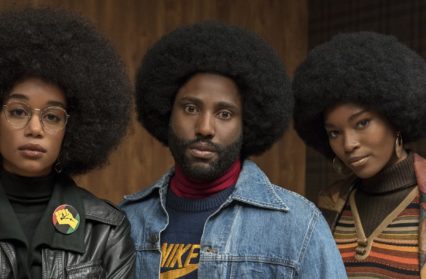There is a nostalgia bug going around and after film and TV it looks like it’s now hit books. Miriam Balanescu shares her thoughts on why we’re all going back to the 70s.
“This is 1973, not 1923. Things have changed. Haven’t you heard of Women’s Liberation?”, Nel, a major player of Welsh writer Sally J. Morgan’s debut Toto Among the Murderers, declares near the start of the novel – a little too forcibly. As we learn, things have changed, and they haven’t. Nel’s protest against the more conservative values harboured by her husband Hank falls flat. Despite women’s liberation movements launching in the UK and overseas, misogyny is rife. In Morgan’s novel, the threat of physical violence against women is imminent, both unexpectedly close to home and less unexpectedly lurking across the fields, in amongst the motorways.
Morgan is not alone in choosing now as a time to reflect on this particular past decade. Spike Lee’s BlacKkKlansman kicked off a 70s-revival trend in 2018, followed swiftly by Misbehaviour, then two dramas, Mrs. America and The Glorias, both revolving around one of the world’s most famous feminists, Gloria Steinem. The publication of Toto Among the Murderers is an indicator that these same 70s themes are beginning to creep into literature. Already, the shelves of many Blackwell’s and Waterstones are decked out with Gloria Steinem biographies. The arrival of Steinem’s new book (bringing her back on the scene), The Truth Will Set You Free, But First It Will Piss You Off!, strangely coincides with this moment in which she is being memorialized.
Nostalgia Bug
The extreme push and pull of progressive versus conservative politics in the 70s is what we seem to be returning to in 2020. As journalist Megan McLachlan believes, the decade was the birth of two antithetical entities, the “conservative blonde” and “intersectional feminism”. Mrs. America makes obvious the echoes of the Trumps in coiffed, stiff-shouldered anti-ERA campaigner Phyllis Schlafly (who herself wrote a book titled The Conservative Case for Trump, published posthumously in 2016). The series also has undeniable parallels to our present-day struggles against racism and homophobia.

Showrunner Dahvi Waller said in creating the show she wanted to portray “the struggle for the leaders of the women’s movement to understand how important it is to embrace gay rights and issues of racism within the Women’s Rights Movement”. The show begins to explore race’s part in the Women’s Liberation Movement through its portrayal of Ms. Magazine editor Margaret Sloan-Hunter, a Black lesbian civil rights advocate – though its exploration of this theme is in tiptoes rather than strides.
BlacKkKlansman, which unfolds against a backdrop of secret Black Panther meetings, goes far further. The reality of a story which can feel at times deceptively light-hearted and uplifting is brought into sharp focus in its closing montage. Beginning with images of the Ku Klux Klan, we are brought right up to date with footage of the 2017 Unite the Right rally in which the chants “Jews will not replace us” and “White lives matter” can be heard. The film ends with shots of a car plunging into a group of counter-protestors, and a tribute to Heather Heyer, who was killed in the attack. Watching this film now, it is almost hard to believe that the creators of BlacKkKlansman had no foreknowledge of the events that would take place this year.
“I think that sometimes it’s easier for us to understand or to reflect where we are today by looking at a period of time in history where we have a little bit of distance and we’re able to see things more clearly, than if we were to write about relevant issues in a contemporary way”, Waller says of Mrs. America. There certainly seem to be many 70s to present-day similarities on the surface, but there is a risk in looking back at the past with an agenda rooted in the present.
This is most notable in Misbehaviour, a feelgood feminist film which returns to the then-fashionable phenomenon of the beauty pageant, Miss World 1970. Once again dramatizing the events of the Women’s Liberation Movement – this time in London, when a group of protestors disrupted the pageant taking place in the Royal Albert Hall – director Philippa Lowthorpe caters to her female viewers by giving male actors wildly sexist lines and moulding a banner-wielding line-up of pop-feminist heroes. The narrative, which skirts around Miss Grenada’s role as the first Black woman to win Miss World, is upbeat and sadly, as a result, lacks nuance. In pandering to contemporary audiences, Misbehaviour is one example of commercialism warping our portrayals of the 70s for the worse.
Mrs. America, while it does a better job of creating complex characters and storylines, still stands guilty of commercial feminism. Interestingly, Steinem herself does not endorse the show, and instead called it “ridiculous” during her appearance at the Hay Festival this year. “The series makes it seem as if women are our own worst enemies, which keeps us from recognising who our worst enemies are. Not that we aren’t in conflict, yes we are in conflict, but by and large we don’t have the power to be our own worst enemies”. Ignorant of this, the show seems to relish the opportunity that pitting Schlafly against Steinem’s peers presents for a catfight.
While the progressiveness of the decade has been emphasised in the media this year, there is also a more insidious, grim streak to our retellings. Violence is a major theme of Morgan’s novel, set at a time when disappearances of young women were frequently reported in the news. The novel is reminiscent of Una’s Becoming Unbecoming (2015), a graphic novel detailing the development of a young girl while aware of increasing attacks against women in Yorkshire. Yet in Toto Among the Murderers violence is treated very differently, not with the horror and disapproval we may have expected. Her protagonist Jo Totton – or Toto – is drawn to violence, actively seeking it out: “I like danger”, she states at the beginning of the novel. For this reason, she and her friends move to an area of Leeds “dodgy as fuck and supposed to be full of gangs that prey on the immigrants who can’t afford to live anywhere else”. Toto almost seems oblivious to the fact that soon this brutality will be levelled at her.
There is a highly uncomfortable voyeurism, separation from and even enjoyment of violence which the novel never quite shakes off. After fending for herself against a sexually motivated attack during a party and heading back downstairs unscathed, Toto, elated, calls herself a “drunken Boadicea, raising her arms in triumph after a night burning Rome to the ground”. The narrative betrays a disturbing lack of emotion or response to physical violence, even perhaps going so far as to trivialise it.
Toto’s encounter with serial killers Fred and Rosemary West is brought about through Toto’s partiality for hitchhiking, which she calls her “preferred game […] It’s played with men in small cars who hide girls under leaves on the top of moors and deep in the woods”. As we learn from the events of the story, Toto belongs to a class which can choose to put themselves in the way of harm, while the immigrants and sex-workers with which she coexists are subjected to violence – often fatal – on a daily basis. For Toto, exposure to this same violence is a bizarre kind of luxury.
The glorification of violence displayed in Toto Among the Murderers has become entrenched elsewhere. Netflix’s Extremely Wicked, Shockingly Evil and Vile (2019) stars Zac Efron as “dreamy” serial killer from the 70s, Ted Bundy; ITV’s Appropriate Adult (2011) follows the Wests after their arrests in 1974. 70s aside, the popularity of shows like Netflix’s You and BBC’s The Fall suggest that our ongoing fascination with male violence shows no sign of loosening its grip.
Assaults against women in the 1970s are worryingly relevant today. Femicide levels, totalling one woman killed by a man every three days, have remained constant for a decade. Despite raised awareness, these figures show little sign of subsiding. So, arguably, in 2020, things have changed, and they haven’t. Perhaps what Morgan’s new novel should remind us is that if we really want progress and equality, we need better systems in place to protect those most vulnerable.
Nostalgia Bug: Books Go Back to the 70s: Miriam Balanescu is a books journalist, writer and illustrator whose short stories and poems have been included in The Airgonaut and Polyglossia, amongst other publications.
nostalgia bug
(Header image: Laura Harrier, John David Washington and Damaris Lewis in BlacKkKlansman. Credit: David Lee/2018 Focus Features LLC.)












